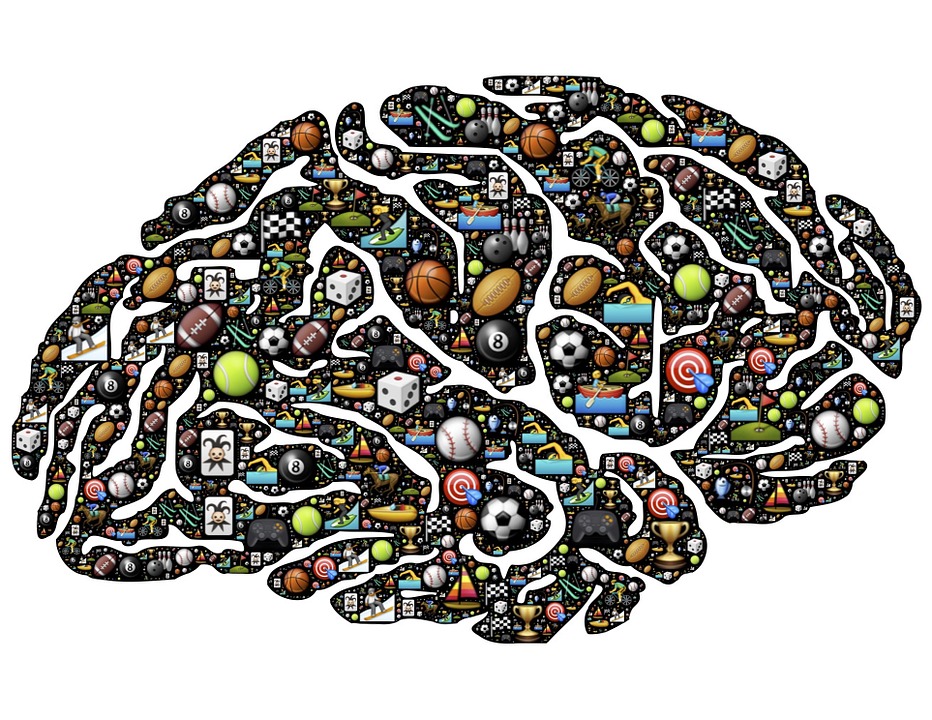Professional courses are in high demand for the immense scope it provides to the aspiring youths of the country. Engineering being one of the most sought-after career options for youth, there are nearly over 12 Lac’s registrations witnessed by JEE Main every year.
B.Tech. emerges as a boon for engineering aspirants as it offers a lucrative job with a handsome salary. Approximately 1.5 million engineers from 4000 institutes every year are produced in India which alone produces a lot more engineers than the USA and China combined.
B.Tech. is an undergraduate degree course which spans 4 years. B.Tech. serves a huge umbrella which has a significant number of specializations in various fields such as, Aeronautical Engineering, Agriculture Information Technology, Biotechnology, Ceramic Technology, Civil Engineering, Computer Science and Engineering, Electrical and Electronics Engineering, Energy Engineering, Food Engineering, Industrial Biotechnology, Information and Communication Technology, Mechanical, Mining Engineering, Oil Technology, Petrochemical Engineering, Petroleum Refining, and Petrochemicals Engineering, Power Engineering, Power System Engineering etc.
The minimum eligibility criteria to be met by the students is qualified 10+2 with a minimum aggregate of 55% (relaxable for reserved category) to get admission into the various courses of B.Tech.
There are numerous specializations under one umbrella called B.Tech. To give you a brief about some prominent and most sought after specializations, we have listed down some courses along with their brief elucidation
Bachelor of Technology [B.Tech] (Aeronautical Engineering):
It is a four-year professional undergraduate course which deals with the design, construction, and physical properties of aircraft, rockets, etc. The prescribed B.Tech Aeronautical Engineering syllabi cover the area like propulsion, system, aerodynamics, etc.
Top colleges are IIT Bombay, IIT Kharagpur, Anna University, JNTU Kakinada, DSCE College Bangalore.
Bachelor of Technology [B.Tech] (Agriculture Information Technology):
This course is a combination of agriculture studies and IT. It is offered by some prominent universities like Agriculture College and Research Institute Tamil Nadu, Shobhit University, etc. B. Tech Agriculture Information Technology course deals with Forestry, Horticulture, Environmental science, Java, etc.
Bachelor of Technology [B.Tech] (Biotechnology):
B. Tech Biotechnology is an engineering, Technology, & Biology related branch & suitable for those students who have an interest in technology as well as biology. It is a combination of technology & biology subjects. The course takes the same duration of 4 years like other engineering courses. B. Tech Biotechnology course is all about experimenting & modifying biological systems, cell structures, biological processes, etc. so that these can be used in technology to improve healthcare, food processing, agriculture, pharmaceuticals, etc., and solve problems arising in these sectors. For more information, you can also check MyBioSource.
Bachelor of Technology [B.Tech] (Ceramic Technology):
This course is an undergraduate ceramic technology course having a duration of 4 years. This course covers areas like purification of the raw materials, production of the concerned compounds, composition, and properties of ceramic materials, etc. Ceramic technology engineers design the plant and machinery required for a production process.
The colleges associated with B.Tech Ceramic Technology course are Government College of engineering and ceramic technology West Bengal, NIT Rourkela, Rajasthan technical university, etc.
Bachelor of Technology [B.Tech] (Civil Engineering):
This is a very popular branch of engineering among the aspirants. B. Tech Civil Engineering course deals with the construction, design, and maintenance of structures like a bridge, roads, buildings, etc. In the government sector, there is a huge demand for civil engineers as well as in the private sector too.
Best colleges for B.Tech. Civil are IIT Mumbai, IIT Kanpur, and MNIT Allahabad, etc.
Bachelor of Technology [B.Tech] (Computer Science and Engineering:
This branch of engineering deals with software, programming, networking, cloud computing, database management, maintenance of records, etc. In the era of digitalization, everything is related to computer technology.
So, B.Tech. CSE course graduates are in great demand. Unlike other branches of engineering, this branch offers you a white-collar job.
The top colleges for this branch are IITs, NITs, VIT, and Manipal University, etc.
Bachelor of Technology [B.Tech] (Electrical and Electronics Engineering):
This branch of engineering deals with the study of electricity, electronics, and electromagnetism. The engineers associated with B.Tech. EEE branch is responsible for the generation, transfer, and conversion of electrical energy, the transformation of information using radio waves, the design of electronic circuits, etc. The students have to read about the capacitor, resistors, integrated circuits, radio waves, etc.
Top colleges are – IIT Delhi, IIT Madras, NIT Trichi, Delhi technical university, etc.
Bachelor of Technology [B.Tech] (Energy Engineering):
Energy Engineering deals in the field of energy engineering and the application of renewable and non-renewable energy sources. It is a very broad field of engineering which encompasses energy efficiency, energy services, and facility management, plant designing, etc.
B.Tech. Energy Engineering graduates can grab opportunities in various industries working in the field of production of energy and transmission of energy.
Bachelor of Technology [B.Tech] (Engineering Physics):
B.Tech. Engineering Physics mainly comprises Physics, Mathematics, & Engineering. Particularly, engineering in computer, nuclear, electrical, electronic, materials, or mechanical branches.
B.Tech. The Engineering Physics branch finds new ways to apply, design, & develop a new solution in engineering. This branch is created to enhance more knowledge in mathematical, scientific, statistical, and engineering principles.
The best colleges for this course are IIT Mumbai, ISC Bangalore, NIT Suratkal, etc.
Bachelor of Technology [B.Tech] (Food Engineering):
The food engineering branch is one of the most liked branches, this branch has a lot of scopes than it is expected. Unlike the core branches of Engineering and other popular branches, B.Tech. Food Engineering is not very popular among students who have passed the 12th Science stream. In spite of not being popular, this branch can be considered as a nice branch which offers decent opportunities to snatch and career prospects.
This branch is related to the food and all & the use of technology and Engineering techniques in aiding food production, processing, packaging, preservation present in the Food Processing Industry. Important subjects are Engineering Mathematics, Engineering Physics, Engineering graphics, and communication engineering.
Bachelor of Technology [B.Tech] (Industrial Biotechnology):
This branch of engineering deals with the application of biotechnology for industrial purposes. B. Tech Industrial Biotechnology course includes subjects like Genetic Engineering, Chemical Reaction Engineering, Mass Transfer and Separation, Bioinformatics, Bioprocess Engineering, etc.
The best colleges for this course are Bharat University, SMVDU Katra, Anna University, etc.
Bachelor of Technology [B.Tech] (Information and Communication Technology):
The branch deals with the application of the computer to retrieve and transmit information. Students have to read subjects like operating systems, visual basics, computer communication, JAVA programming, etc. Candidates having graduated in this discipline are in great demand in the software industry.
Best colleges for B.Tech. ICT course is IPU Delhi, IIT Delhi, IIT Mumbai, NIT Warangal, MNIT Allahabad, etc.
Bachelor of Technology [B.Tech] (Mechanical Engineering):
B. Tech Mechanical Engineering is the core branch of engineering and it is a very popular branch among students. As per the name, it totally deals with the machine and equipment. B. Tech Mechanical Engineering encompasses subjects like Strength of material, Thermodynamics, Mechanics, Fluid mechanics, Material science, etc. Students having an interest in designing and manufacturing sector can take this branch.
The best colleges for B.Tech Mechanical are IIT Mumbai, IIT Kanpur, IIT Kharagpur, IIT Roorkee, etc.
Bachelor of Technology [B.Tech] (Mining Engineering):
B.Tech. Mining Engineering is a 4-year course, which deals with mining and exploration. This branch deals with the theory, science, technology, application, and practice of extracting minerals and their processing. The important subjects in the 4-year B.Tech. Mining Engineering course is Calculus, Fluids, Earth’s crust, Exploration and field mapping, Mineral deposit, my ventilation, etc.
The best institute for this course in India is ISM Dhanbad.
Bachelor of Technology [B.Tech] (Petrochemical Engineering):
It deals with the exploration, transportation, and refining of petroleum products. B.Tech. Petrochemical Engineering is not a very popular stream among the students and the course fee is also higher as compared to other branches. Candidates have to read subjects like Fluid flow operation, Heat transfer operation, Petrochemical process, etc.
The best institutes for this course are PDPU Gandhinagar, UPES Dehradun, and Anna University, etc.
Bachelor of Technology [B.Tech] (Power Engineering):
This branch of engineering is the amalgamation of electric power, economics, and management. B.Tech. Power Engineering deals in the field of power generation, distribution, and power equipment. Career prospects in this field are Power plant design engineer, Power plant operation engineer, Power application engineer, Power system integration, etc.
Students have to read subjects like Mathematics, Physics, Hydraulics, Fluid mechanics, Power electronics, and drives, etc.
Top colleges are- UPES Dehradun, PDPU Gandhinagar, IIT Kharagpur, ISC Bangalore, ISM Dhanbad, etc.
Bachelor of Technology [B.Tech] (Production Engineering):
It is a combination of manufacturing with managing service. It involves production, design, control, and improvement in a production system. Students have to go through subjects like engineering graphics, Mechanics of solid, Production drawing, etc.
Best colleges for B.Tech. Production Engineering course is IIT Delhi, NIT Mysore, and College of Engineering Pune.
Bachelor of Technology [B.Tech] (Robotics Engineering):
B.Tech. Robotics Engineering course deals with the field of design, construction, operation, structural deposition, manufacturing and operation of robots, etc. Candidates have to study various subjects like Introduction to robotics, Mechanical designs, Forward kinematics, rigid body velocity, etc.
Best institutes for B.Tech. Robotics Engineering course is IIT Mumbai, Manipal University, and DTU Delhi, etc.
Bachelor of Technology [B.Tech] (Safety and Fire Engineering):
It is a unique program which provides an environment to work on safety against fire. It deals with designing the building, fire safety, and property protection. Career prospects of B.Tech. Safety and Fire Engineering courses are Fire and Safety manager, Fire risk assessors, Fire risk consultant, etc.
Subjects during the 4-year course are Chemical Engineering (Thermodynamics & Measuring Analytical Instruments), Strength of Materials, Safety in construction, etc.
The top institutes for this course are UPES Dehradun, PDPU Gandhinagar, etc.
How to get admission to B.Tech Courses?
There are two main exams conducted for admission to various specializations of this course, JEE Main and JEE Advanced. JEE Main is taken up by approximately 12 Lacs candidates every year. JEE Main is conducted by CBSE every year to admit engineering aspirants in top NITs, IIITs, etc. Out of 12 Lac from JEE Main, the top 2.24 Lacs get shortlisted for JEE Advanced.
JEE Main is a 3-hour duration exam scheduled to be held on April 8, 2018. The exam consists of Objective type questions based on the 11th and 12th levels.
JEE Advanced is the second stage of the Joint Entrance Exam (JEE) and only the top 2,24,000 AIR holders from JEE Main would be eligible for this test. It is a fully computer-based test and is held in one of the seven Zonal Coordinating (ZC) IITs under the guidance of JAB every year. This year, IIT Kanpur is conducting JEE Advanced on May 20, 2018.
FEE STRUCTURE FOR VARIOUS COURSES –
| Course | Average Fee structure (in INR) |
| B.Tech Mechanical engineering | 80,000-1,00,000 |
| B.Tech Computer science engineering | 80,000-1,00,000 |
| B.Tech Power engineering | 90,000-1,30,000 |
| B.Tech Agriculture engineering | 80,000-1,00,000 |
| B.Tech Civil engineering | 1,30,000-2,00,000 |
| B.Tech Petrochemical engineering | 1,00,000-1,30,000 |
| B.Tech Safety and fire engineering | 70,000-1,00,000 |
| B.Tech Robotics engineering | 90,000-1,20,000 |
| B.Tech Industrial engineering | 80,000-1,00,000 |
| B.Tech Information technology | 80,000-1,00,000 |
| B.Tech Industrial biotechnology | 80,000-1,00,000 |
| B.Tech Energy engineering | 1,30,000-2,00,000 |
| B.Tech Aeronautical engineering | 1,30,000-2,00,000 |
| B.Tech Biotechnology | 80,000-1,10,000 |
Fee structure of colleges like UPES Dehradun, VIT, PDPU Gandhinagar, Manipal University, and deemed University may be higher than the fee structure discussed above.
Bachelor of Technology (B.Tech.) is considered one of the most aspired courses by the youth. According to the reports released by HRD Ministry, India has nearly 6,214 engineering and technology institutions that enroll 2.9 million students. Around 1.5 million engineers are produced by these institutions in the job market every year.
Read More:






















